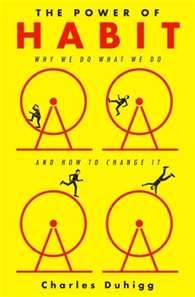Praise Matters
Praise Matters
 In working with businesses and organizations of all kinds, I hear the same concerns everyday:
In working with businesses and organizations of all kinds, I hear the same concerns everyday:
- How do we increase productivity?
- How do we improve Customer service?
- How do we keep people actively engaged in their work and with others on their team?
- How do we reduce turnover?
- How do we improve safety?
Even if you aren’t thinking about or concerned with every one of those questions, I’m sure at least one of them has kept you up at night in the past.… Read the rest

 searched for ways to rescue the animal, with no success. Regretfully the owner decided that since the donkey was growing old, he should give up the idea of rescuing the animal and simply fill in the well. Hopefully, the donkey’s demise would be quick and painless. The farmer then called his neighbors to help with the task, and soon several men began shoveling dirt into the well. When the donkey realized what was happening, he brayed, and struggled … but finally the noise stopped.…
searched for ways to rescue the animal, with no success. Regretfully the owner decided that since the donkey was growing old, he should give up the idea of rescuing the animal and simply fill in the well. Hopefully, the donkey’s demise would be quick and painless. The farmer then called his neighbors to help with the task, and soon several men began shoveling dirt into the well. When the donkey realized what was happening, he brayed, and struggled … but finally the noise stopped.…  Whether you are a business, a charitable organization, or an association, the relationships you have with customers, donors, or members is critical to continued success. That relationship needs to be one which builds loyalty. At the root of success is the loyalty of those, in many cases employees, within the organization to the mission. A lack of employee loyalty may result in the inability to achieve goals and dysfunctional communication. Morale and culture issues may develop. On an overall basis, there is no alignment of systems, people, and strategy.
Whether you are a business, a charitable organization, or an association, the relationships you have with customers, donors, or members is critical to continued success. That relationship needs to be one which builds loyalty. At the root of success is the loyalty of those, in many cases employees, within the organization to the mission. A lack of employee loyalty may result in the inability to achieve goals and dysfunctional communication. Morale and culture issues may develop. On an overall basis, there is no alignment of systems, people, and strategy. Every morning I have a routine to start my day. I get up, brush my teeth, floss, rinse with mouthwash, shower and put in my contact lens. If for some reason that routine is disturbed, I might find myself later in the day wondering why I can’t see well. Have you ever found yourself leaving home and going in the wrong direction in your car because you are not going to work that day, but to a different destination. These are two examples of the habits that develop over time into routines
Every morning I have a routine to start my day. I get up, brush my teeth, floss, rinse with mouthwash, shower and put in my contact lens. If for some reason that routine is disturbed, I might find myself later in the day wondering why I can’t see well. Have you ever found yourself leaving home and going in the wrong direction in your car because you are not going to work that day, but to a different destination. These are two examples of the habits that develop over time into routines One of the greatest lessons in time management is to realize the difference between spending time and investing time. The dictionary defines spend as “to use up, exhaust, consume.” If you spend, you have no return. On the other hand, when we invest we “spend with expectation of some satisfaction, of obtaining an income or profit.”
One of the greatest lessons in time management is to realize the difference between spending time and investing time. The dictionary defines spend as “to use up, exhaust, consume.” If you spend, you have no return. On the other hand, when we invest we “spend with expectation of some satisfaction, of obtaining an income or profit.”

 In difficult situations, when companies are in crisis and can only be saved by major effort, group morale often rises to far higher levels than before. Individual objections and objectives are bypassed in the collective drive to do what must be done. This is where recognition awards take importance. High group morale can enrich individual motivation and performance remarkably! These are two types of awards: planned and unplanned.
In difficult situations, when companies are in crisis and can only be saved by major effort, group morale often rises to far higher levels than before. Individual objections and objectives are bypassed in the collective drive to do what must be done. This is where recognition awards take importance. High group morale can enrich individual motivation and performance remarkably! These are two types of awards: planned and unplanned. organizations to provide managers with a structured approach to the key retention criteria.Simplistically, most people will feel motivated and will want to stay in their job if their manager:
organizations to provide managers with a structured approach to the key retention criteria.Simplistically, most people will feel motivated and will want to stay in their job if their manager:
 If you’re an employer or manager, then work place
If you’re an employer or manager, then work place  So often we hear from the owner of a business or the manager of an organization lament about the performance of employees or associates. They speak of it as though they were having an out-of- body experience in which they were completely separated from the activities of the group. When I hear these types of comments, I am reminded of an old Greek phase, translated to
So often we hear from the owner of a business or the manager of an organization lament about the performance of employees or associates. They speak of it as though they were having an out-of- body experience in which they were completely separated from the activities of the group. When I hear these types of comments, I am reminded of an old Greek phase, translated to In fact many organizations are faced with the reality that they need to get more results through smaller and perhaps more fragmented teams. As your employees have added and shifted roles, positions, and responsibilities, how do you know you have the right people in the right positions in order to maximize your organization’s efforts and outcomes?…
In fact many organizations are faced with the reality that they need to get more results through smaller and perhaps more fragmented teams. As your employees have added and shifted roles, positions, and responsibilities, how do you know you have the right people in the right positions in order to maximize your organization’s efforts and outcomes?… 